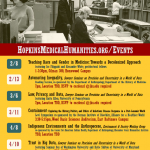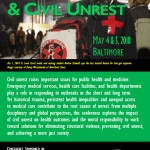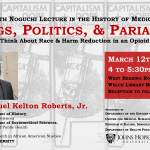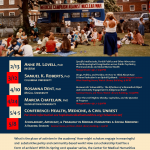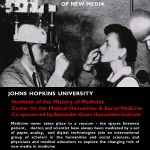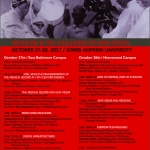Who gets sick, who gets better, and why?
The biological mechanisms of medical science and the quantitative sciences of public health only get us partway to the answers to these fundamental questions. Key aspects of our understanding of health and illness are only answerable through analyses that draw from the methods of humanities and social sciences—including ethnography, history, philosophy, and sociology—to help understand the social context of illness and health outside of the ordered environment of the hospital, clinic, and laboratory. The Johns Hopkins Center for Medical Humanities and Social Medicine is an interdisciplinary teaching and research unit that bridges the humanities, social sciences, and health sciences across the campuses of Johns Hopkins University to foster innovative interdisciplinary scholarship with maximum impact, and to train undergraduates, graduate students, and health professionals with skills to apply critical social analysis to the study of health and disease.
Together, the fields of social medicine and medical humanities and arts help health care professionals develop acumen in addressing nuance, contradiction and uncertainty in health care settings and in broader society.
